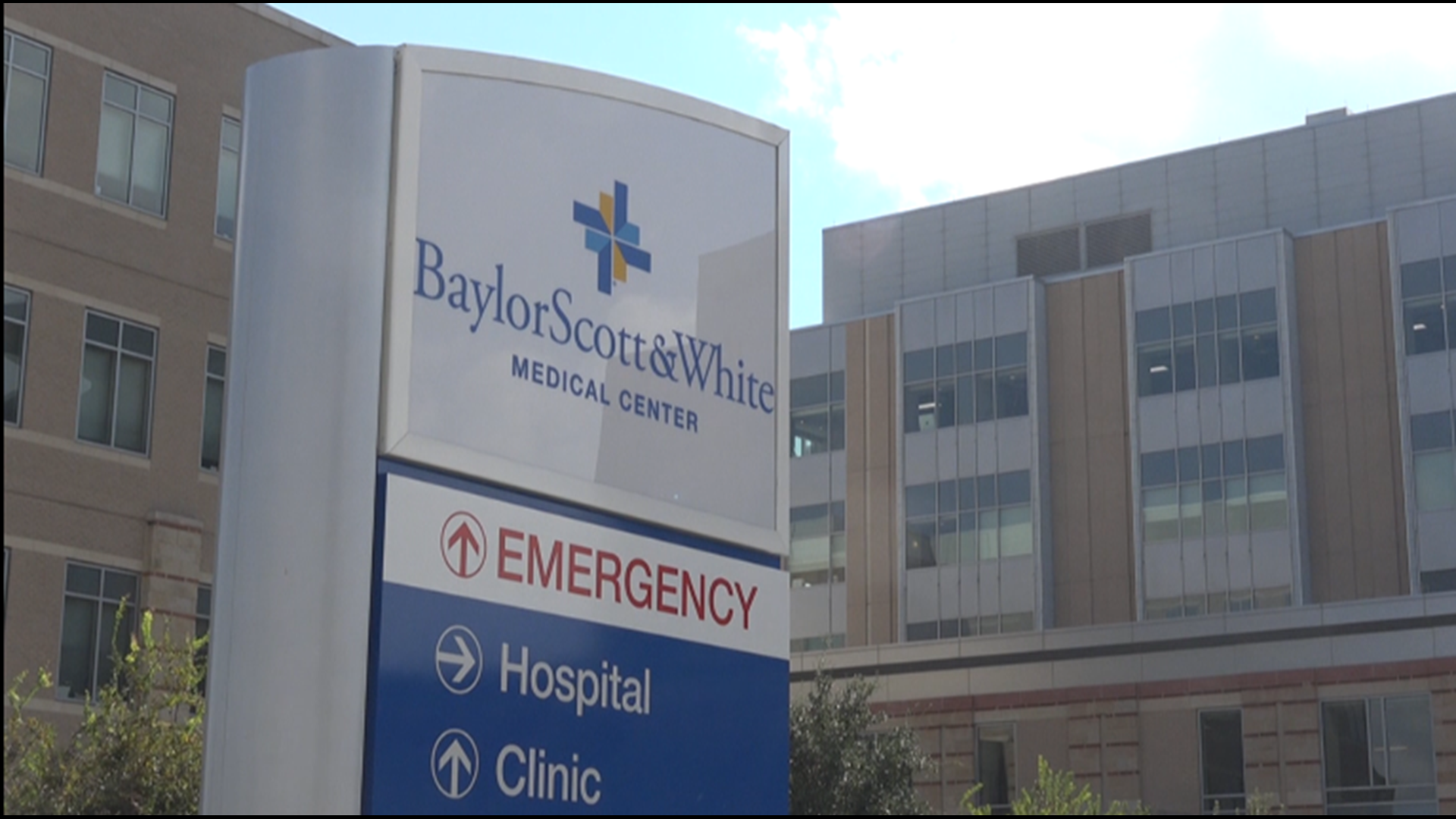TEMPLE, Texas — Doctors transferred Micah Burns to Baylor Scott and White Memorial Hospital three weeks ago after he was diagnosed with leukemia. His wife, Brittney Burns, told 6 News she called constantly to try to see him, but for two weeks staff told her no.
She said staff told her there was only one way he could be seen.
"They kept telling me the only way you are allowed up here is if your husband is 24 hours away from death," Burns said.
Two weeks after that transfer, Burns said her husband took a turn for the worst. She said he had fluid on his lungs and could not breath on his own. He was rushed to the ICU and suddenly he fit an exception for the hospital's no-visit policy. But, Burns said, that exception had limits.
"They let me up there and that was only for thirty minutes," Burns said. "I'm sitting there thinking, 'Am I ever going see him after this? Am I going to see him awake?' And then you are rushed out and everything."
Micah Burn's condition improved in the following days but then he went into renal failure.
Burns said she was allowed to see him again to make choices for an upcoming procedure.
"It's absolutely horrible that this is the only way people can see their loved ones now when they are that close to death. It's not right," Burns said.
Baylor Scott and White told 6 News Monday they had recently moved to a no-visitor policy in order to protect patients and staff from consistent spread of COVID-19 in the area.
Baylor Scott and White said in an email, "At Baylor Scott & White, there is nothing more important to us than the well-being of our patients and staff and the broader health of our communities. We know that our patients and their loved ones are likely experiencing a range of emotions in this time of heightened awareness about COVID-19, and we are committed to helping them navigate the uncertainty of this virus."
The email went on to say, "We understand the importance of having the support of loved ones during a hospital visit or stay and the importance of protecting the health and safety of our patients and caregivers during this unprecedented pandemic. Baylor Scott & White has evaluated visitor procedures and recently moved to a temporary 'no visitor' policy. Our priority is to reduce transmission risk among our care team members, patients and the community, and to protect individuals who are at a higher risk for adverse health complications. We encourage virtual visitations using personal mobile devices."
The email said there are a few exceptions to the no-visitor policy. One visitor over the age of 16 can be admitted for the following:
- Pediatric/NICU patients
- Laboring/post-partum patients
- Patients undergoing a surgery or procedure
- Patients with disabilities or impairments
- Patients receiving end-of-life care
The email stated visitors who meet the exception criteria must pass a health screening, which includes a temperature check, and they must wear a mask at all times while in the facilities.
A Baylor Scott and White spokesman said family should contact the patient relations department at 254-724-3035 to ask about an exception. 6 News asked who approved the exceptions but the question went unanswered. Burns said the process is not as simple as it sounds.
"They told me I needed to call patient relations. That said a manager or a doctor has to approve it. When you talk to a doctor they say it has to be a doctor. When you talk to a doctor they say it has to be a manager," Burns said. "They don't ever have a name or phone number to call."
Burns said she believes that if they allow at least one family member to help each patient, it could mean better care for everyone in the long run. Burns said, based on what she's seen, the nurses are working to exhaustion to try to keep up with patient needs. She wishes she could help.
"The poor nurses, they are running back and forth, back and forth trying to take care of everything. They are physically exhausted, and probably mentally exhausted from everything they have to do," Burns said. "If a loved one was in there to help them to the bathroom or get them something to drink, it's just the little things loved ones could do and take a load off."
Also on KCENTV.com:

